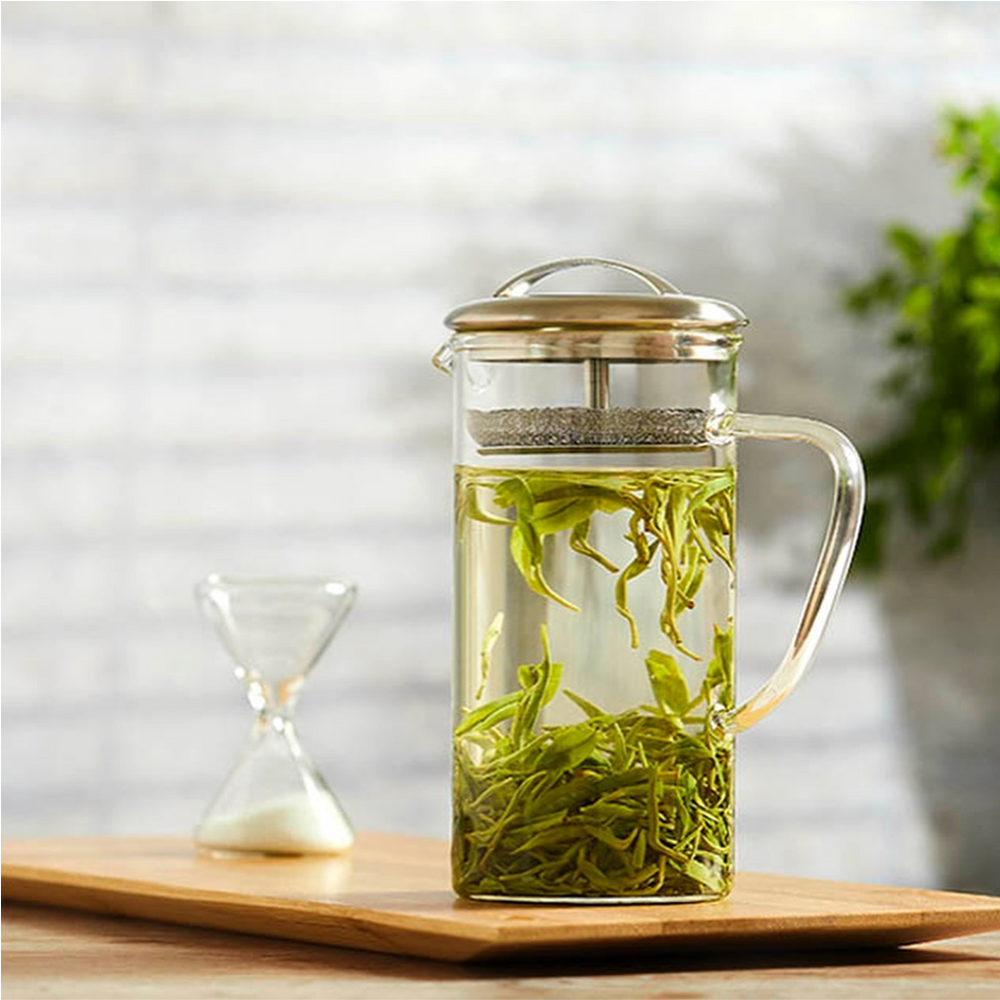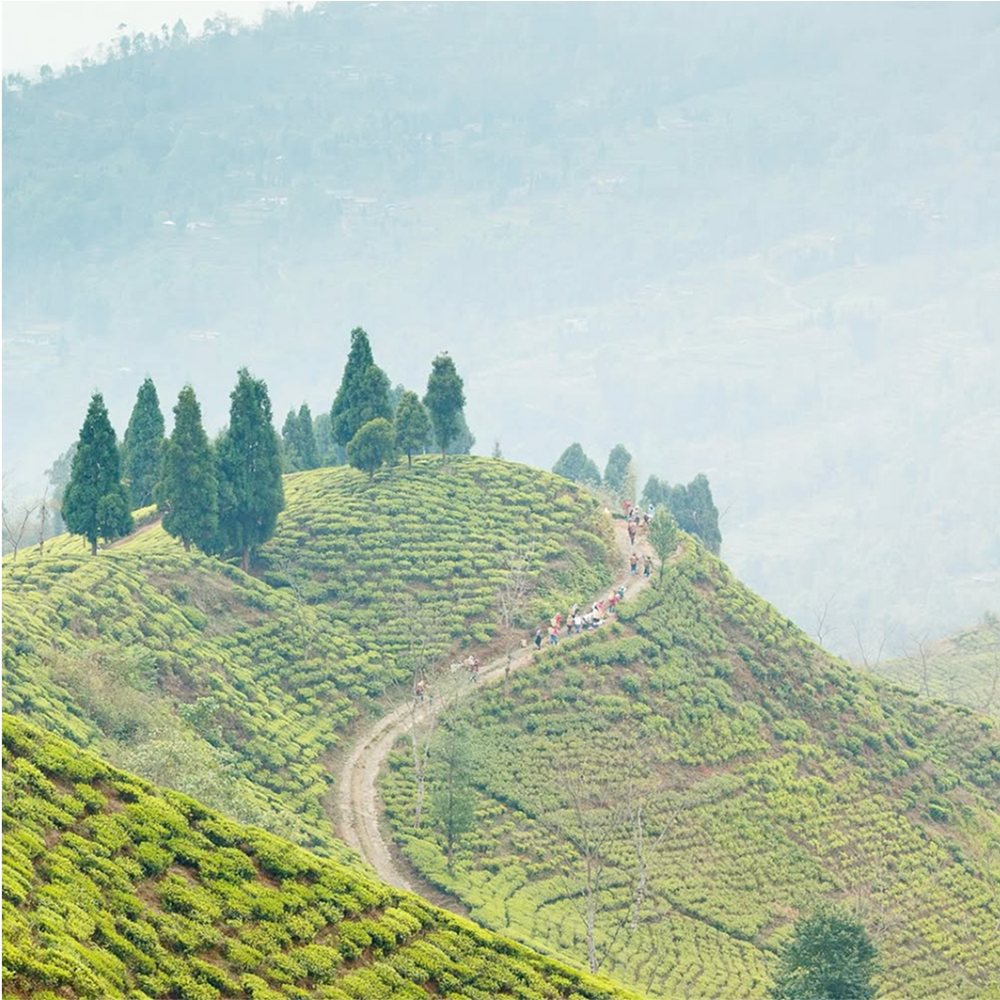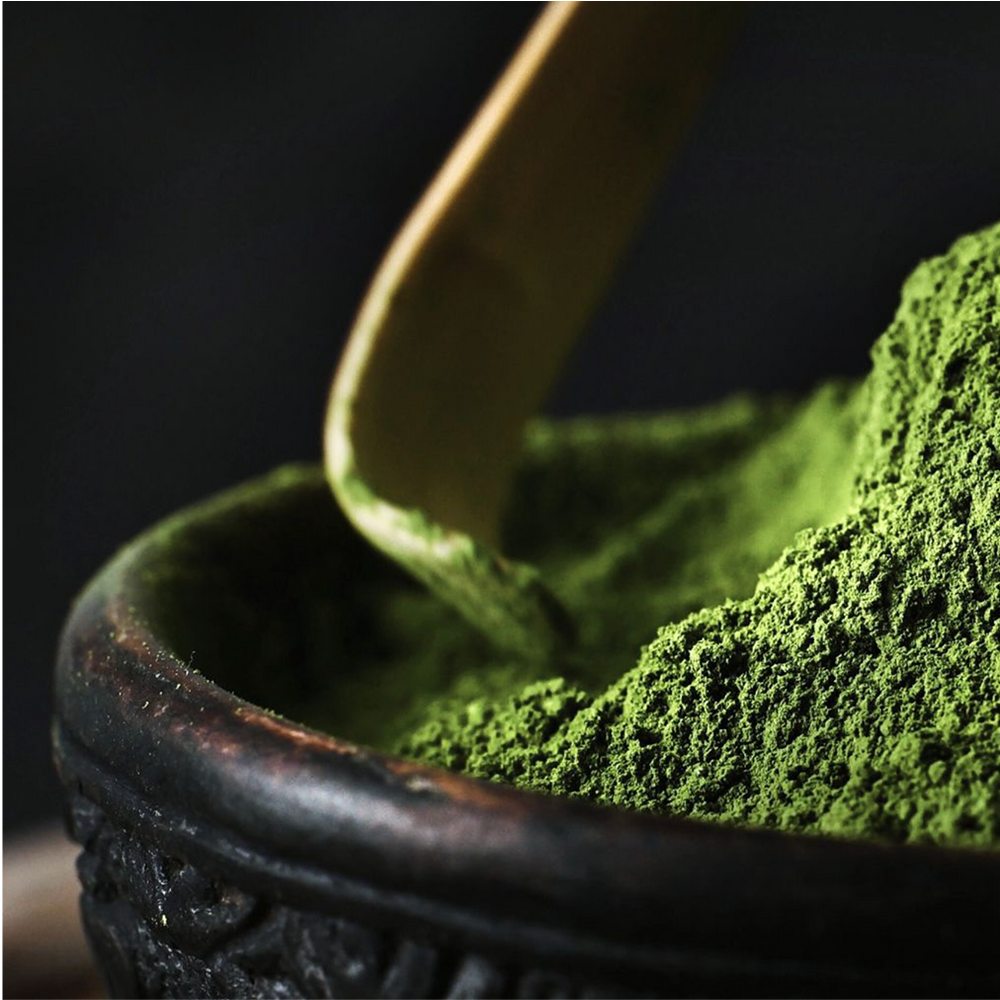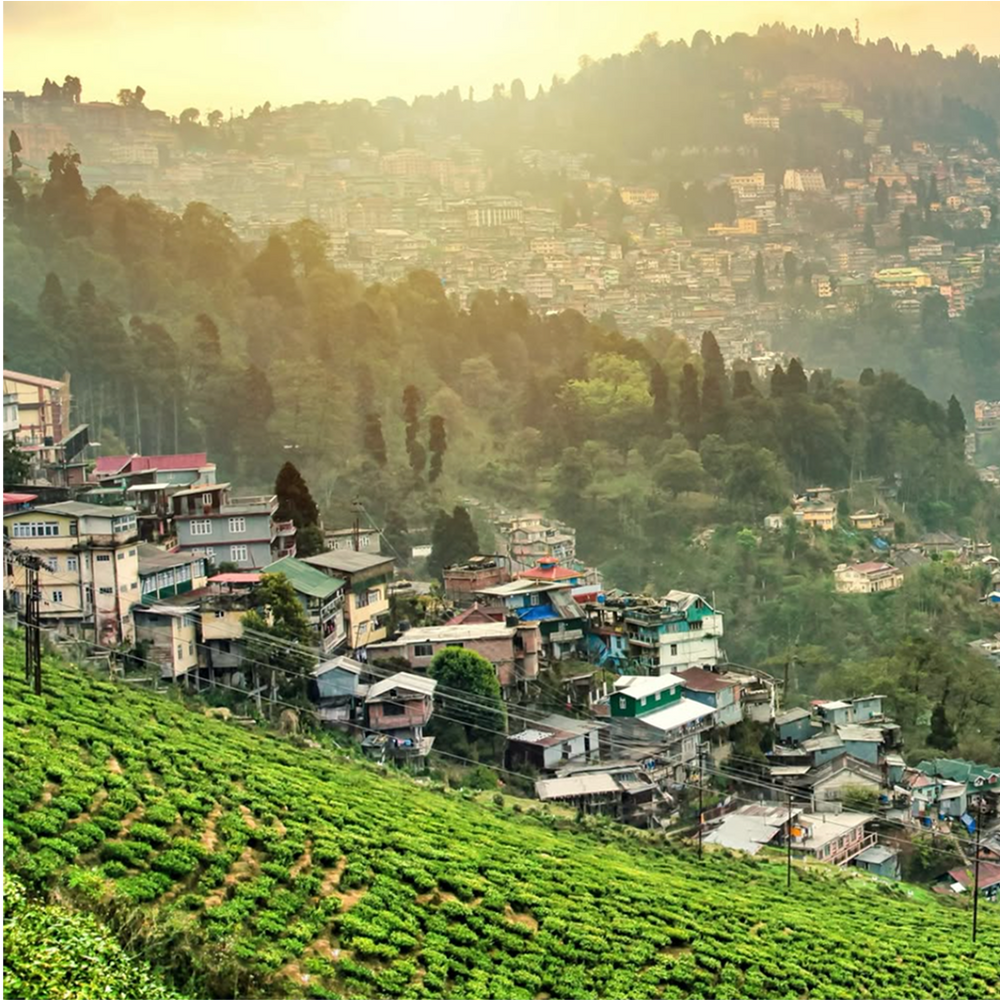Three years ago, we set out to transform our range by moving primarily to organically sourced teas. We set the ambitious target of 80% of our teas to be certified organic or Made Without Pesticides by the end of 2022.
Our Organic Sourcing Journey

What's the difference between Certified Organic vs Made Without Pesticides?
Either or is quite important. The Made Without Pesticides standard is our way of encouraging zero use of pesticides but without the significant expense of organic certification. It’s more suited to some of our smaller gardens, who export only a very small part of their tea and can’t justify formal certification. To meet the standard, we insist that the garden doesn’t use pesticides at any time of year, and we send the finished tea to a lab for intensive screening to ensure no residues are detected.
Zero use of pesticides and herbicides has similar advantages to certified organic practices for biodiversity in the garden, health of tea garden communities, producers, and our tea drinking customers.

Tom with Red Dragon Tea Maker Chen Qiguang in Ximeng Garden, Yunnan, China. A small single garden which has a long standing Made Without Pesticides Certification with JING.
Where is JING on its organic journey?
Today, we sit at around 70% organic, representing an enormous change throughout our supply chain.
Some things haven’t changed – the organic teas I have selected all have the same character, taste, and individuality. That was the brief, to move to organic without compromising quality. Some voices in the tea industry would be sceptical that this is possible, and it’s true – I found some origins where organic tea distinctly differs from the flavours we expect.
Assam is a good example: organic Assam is hard to find with similar bright red colour and punchy texture for a good breakfast tea. Japan is another place where conventional teas are often considered higher quality. In other areas, such as Yunnan in China, organic agriculture is becoming more widespread, and excellent examples already exist, such as our Organic Yunnan White Peony and Organic Yunnan Breakfast.
What are your favourite organic teas in our range?
Of the organic teas we’ve added in the past couple of years, here are a few of my favourites:
Organic Yunnan Breakfast
There's lots of organic black tea in Yunnan, but not so much aimed at the style needed for breakfast tea, with strong and impactful flavour when adding milk. So, I spend a lot of time sourcing each batch of this tea, and the current one is very satisfying, with a toffee sweetness that takes me back to first tasting this type of tea when I lived in Beijing in the early 2000s. It was a great pleasure to visit this garden for the first time on our spring 2023 sourcing trip. We could clearly see how the local conditions and a high mountain tea garden with native large-leaf cultivar contribute to this tea's unique character.
Organic Yunnan White Peony
This is one of the first teas we added after deciding to increase the proportion of organic teas in our range. Of the two styles of white peony tea in Yunnan, this is the greener style and brings with it rose aromas and a subtle fruity flavour, which took me some time to pin down but finally concluded, this reminded me most of nectarine. Its mellowness is a real feature, and I find myself reaching for it when otherwise undecided or in need of a comforting tea, perhaps with a hangover.
Organic Sencha
Most organic Japanese tea is from Kagoshima, but this one retains the Shizuoka origin of our non-organic version. It has the same high mountain character because it's from a similar area, very aromatic and floral with just a little astringency characteristic of the region, making it an excellent green tea for colder weather.
What’s next for our organic range transformation?
The teas that prove most stubborn for finding good organic examples are some of the traditional oolong types, famous in China and rarely exported. This is the next area of focus, and we have decided to work more closely with promising gardens to encourage a switch to our Made Without Pesticides standards. However, there will need to be a transition period. Typically, a conventional garden turning toward organic certification will spend three years before the certificate is issued. The most recent find is an organic version of our Wuyi Oolong, which is a Water Sprite cultivar – a tea I'm very excited about and looking to launch early in 2024...



